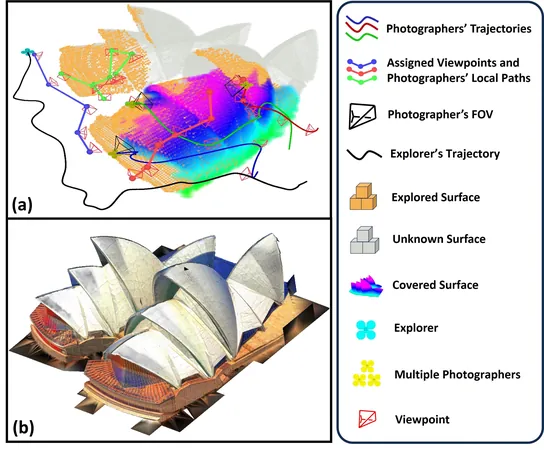
Revolutionary Rocket Thruster Could Unlock Endless Deep Space Exploration!
2024-09-27
Groundbreaking Rocket Thruster Development
A groundbreaking rocket thruster developed by a team at the University of Southampton promises to make deep space travel a reality by utilizing any type of metal as fuel. This innovation could pave the way for seemingly limitless voyages into the cosmos, challenging our understanding of space exploration.
Current Spacecraft Fuel Limitations
Currently, most spacecraft rely on rare gas phase fuels like xenon or krypton, which are manageable to source on Earth yet notoriously difficult to obtain in the vastness of space. This new propulsion system revolutionizes that dynamic by allowing spacecraft to harvest metals commonly found on comets and moons, transforming them into fuel during their journeys.
Significance of the New Technology
Lead scientist Dr. Minkwan Kim highlighted the significance of this technology, stating, 'Using metals that can be harvested along the journey opens a new way to explore planets and space. These thrusters can travel far into deep space and be operational for many years.' The thrusters under development have the capability to burn metals, including iron, aluminum, and copper, which are relatively abundant in space.
Partnership and Funding
This novel propulsion system, known as the Super Magdrive, is being evaluated in partnership with the British space firm Magdrive and has secured £1 million in funding from the UK government.
Future Potential and Vision
Dr. Kim envisions this technology becoming a cornerstone for future deep space missions, saying, 'We don't know how far this technology can change or the extent of discovery it can unlock.'
A Future of Endless Discovery
Imagine a future where humanity can explore distant planets, seek out new life, and go to places that no one has ever ventured before. The potential for endless discovery is just beginning, and this revolutionary thruster could be the key that opens the doors to the final frontier. Stay tuned as we follow this game-changing development in space exploration!




 Brasil (PT)
Brasil (PT)
 Canada (EN)
Canada (EN)
 Chile (ES)
Chile (ES)
 España (ES)
España (ES)
 France (FR)
France (FR)
 Hong Kong (EN)
Hong Kong (EN)
 Italia (IT)
Italia (IT)
 日本 (JA)
日本 (JA)
 Magyarország (HU)
Magyarország (HU)
 Norge (NO)
Norge (NO)
 Polska (PL)
Polska (PL)
 Schweiz (DE)
Schweiz (DE)
 Singapore (EN)
Singapore (EN)
 Sverige (SV)
Sverige (SV)
 Suomi (FI)
Suomi (FI)
 Türkiye (TR)
Türkiye (TR)